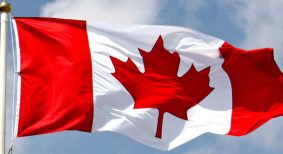The interest rate hike by a full percentage point came as a surprise to a panel of economists who collectively predicted a 75bp rise in Finder’s BoC Interest Rate Forecast.
Nearly half of the experts, consisting of academics and financial professionals, predict a 15 per cent to 20 per cent drop in housing prices by the end of 2022, with most believing new housing supply won’t bring prices down more than higher interest rate hikes. The cost of living is also expected to rise in six months, along with household debt.
Ahead of today’s news, the panel had agreed in the report that an aggressive increase for July is the right move. “Inflation has not yet peaked and it is important for the Bank to show some of its commitment to do whatever it takes,” said Angelo Melino, a professor at the University of Toronto.
The current consensus is that at most overnight rate meetings this year there will be increases. The majority of economists see the overnight rate rising at least twice more this year, in September and October, with 35 per cent believing there will be yet another end-of-year hike in December.
Most economists cited inflation and the prospect of recession as the main causes for concern.
“The level of inflation is indeed way too high, which warrants active monetary policy,” said Murshed Chowdhury, associate professor, University of New Brunswick. “However, the Bank needs to be cautious regarding raising rates as the impacts are heterogeneous on households’ income, debt and wealth.”
Tony Stillo, director of Canada economics at Oxford Economics, believes macro headwinds are impacting inflation and predicts a possible path forward.
“The Bank of Canada has made it clear that its primary focus is returning inflation to target and that it will be ‘forceful’ if need be. So, with CPI inflation hitting a 40-year high of 7.6% y/y in May, we now expect 3 more 50bp hikes will lift the policy rate from its current 1.5% level to 3% by October.
“This would reach the top of the Bank’s 2–3% range for the neutral rate but be above our 2% estimate. In our view, this would bring rates well into restrictive territory. We then expect the Bank will reduce the policy rate to its neutral level of 2% in H2 of 2023, once it has sufficient evidence that inflation and the broader economy are slowing.”
Recession risk a question of when—not if
The majority (69 per cent) of the panel expect the Canadian economy to go into a recession between now and 2025, with half forecasting the recession to hit in 2023
Moshe Lander, senior lecturer of economics at Concordia University, is among those forecasting a slowdown in the first half of 2023, even though he believes the technical definition of a recession (two quarters of negative GDP) may be avoided.
“There is no question that Canada is heading for a slowdown. A slowdown/recession should be welcomed, he said. “There are a lot of imbalances that have developed trying to survive the various COVID restrictions and lockdowns. Pushing weak and inefficient businesses to sharpen up is not a bad thing and a slowdown is the best way to focus minds and finances.”
Melino also sees a recession hitting by early 2023.”We will need a lot of good luck to avoid a recession,”he said. “Inflation will have to come down quickly (good harvests, peace in Ukraine, low COVID cases next winter).”
On the other hand, Atif Kubursi, president and emeritus professor at Econometric Research and McMaster University, believes a recession will occur in the second half of 2023. “The BoC has little options, but if it is aggressive in its fight to wrestle inflation it may exceed what is required to tame inflation and nudge the economy into recession,” he said. “Canadians are over-indebted and the government debt service will rise leaving little room for additional expenditure. Given the war in Ukraine, there will be pressures for increased defence expenditures and aid to Ukraine that add fuel to inflation.”
Other economists figure differently.
“We are clearly heading for slower growth next year,” said Charles St-Arnaud, chief economist, Alberta Central. “Whether it will be a recession remains uncertain.”





